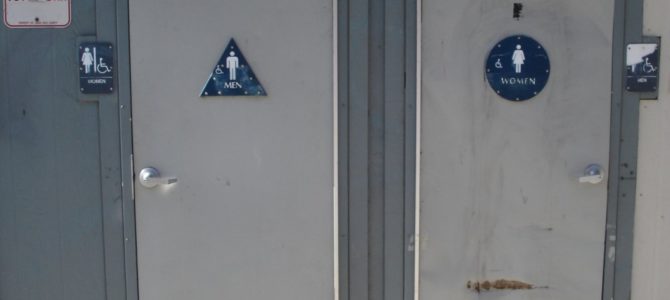
On June 28, the Supreme Court refused to hear an appeal in the Title IX transgender case Gloucester County School Board v. Grimm. In denying a local school board’s petition for review, the Supreme Court has all but guaranteed that the lower courts—and the Biden administration—will adopt an extreme view of transgender discrimination that threatens parental rights, privacy rights, and the right to free speech and free exercise of religion. Here’s why.
In 2020, in a 6-3 decision, the Supreme Court held R.G. & G.R. Harris Funeral Homes v. EEOC that transgender discrimination is, by its very nature, sex discrimination and thus prohibited under Title VII, which bans discrimination in employment on the basis of an individual’s sex. The majority opinion, authored by Justice Neil Gorsuch, reasoned that “an employer who fired an individual for being homosexual or transgender fires that person for traits or actions that it would not have questioned in members of a different sex. Sex plays a necessary and undisguisable role in the decision, exactly what Title VII forbids.”
While declaring transgender discrimination illegal, the majority refused to delineate what exactly constitutes such discrimination, stressing “the only question before us is whether an employer who fires someone simply for being homosexual or transgender has discharged or otherwise discriminated against that individual ‘because of such individual’s sex.” Since “sex-segregated bathrooms, locker rooms, and dress codes,” as well as other anti-discrimination laws such as Title IX, which prohibits sex discrimination in educational institutions, were not before the court, the majority claimed not to “prejudge any such question today.”
Before moving to the mischief the court spurred with its holding in Harris Funeral Home, it is initially important to expose the fallacy in Gorsuch’s claim that the only question before the court concerned whether firing someone for simply being transgender discriminated against that individual because of the individual’s sex. Contrary to Justice Gorsuch’s framing of the issue, Harris Funeral Home did not fire Aimee Stevens because he was transgender: The funeral home fired Stevens because he informed the funeral home he would be presenting himself as a woman at work, including by following the dress-code for women.
By reframing the question in Harris Funeral Home, the majority avoided the more difficult (and more controversial) scenarios. But the court also left employers and educational institutions to figure out exactly what constitutes illegal transgender discrimination, and without any guidance from the Supreme Court, the lower courts and the Biden administration are moving swiftly to institute a radical transgender ideology in the law.
The most recent move came two weeks ago, when Biden’s Equal Employment Opportunity Commission Chair Charlotte Burrows issued “guidance” on the meaning of the Harris Funeral Home’s case. In a Q&A section, Burrows told employers they may not require a transgender employee to dress in accordance with his or her biological sex (although Burrows cast it as “sex assigned at birth”). “Prohibiting a transgender person from dressing or presenting consistent with that person’s gender identity would constitute sex discrimination,” the guidance claimed.
The guidance further stated that “employers may not deny an employee equal access to a bathroom, locker room, or shower that corresponds to the employee’s gender identity.” The EEOC’s guidance also indicated that “intentionally and repeatedly using the wrong name and pronouns to refer to a transgender employee could contribute to an unlawful hostile work environment.”
The lower courts are likewise reading Harris Funeral Home broadly, both in the context of Title VII, which governs discrimination in employment, and Title IX, which applies to educational institutions. The case of Gloucester County School Board v. Grimm represents the latter scenario, where the Fourth Circuit Court of Appeals held that a Virginia school board must allow a biological female who suffers from gender dysphoria to use the boy’s bathroom.
Yet on June 28 the Supreme Court refused to hear the Gloucester County School Board’s appeal, with only Justices Clarence Thomas and Sanyek Alito voting to grant the petition for certiorari. The other justices may have decided against taking the case because Gavin Grimm has already graduate, or because the court sought more debate and analysis of the Harris Funeral Home decision before weighing in again. While such reasons for denying certiorari often make sense, in this case they do not because the Supreme Court created the mess facing the country by failing to define illegal transgender discrimination, leaving the left to run amok on the issue.
Further, while the Supreme Court may see no urgency in the resolving the legal questions at issue, while the justices sit on the sidelines, the privacy rights of children (and adults) are at risk, as are parental rights, the right to free exercise of religion, and the right to free speech—which also includes the right not to be compelled to speak, even when the forced speech concerns pronouns.
The issue is not going away. Hopefully the next time a petition reaches the Supreme Court, the two more justices will keep that in mind.









